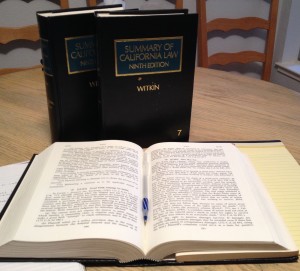When Can Parents Be Held Liable for a Child’s Acts?
CHILDREN CAN BE HELD CIVILLY LIABLE FOR TORTIOUS CONDUCT
Minors–persons under the age of 18–have civil (and criminal) liability for their actions. Most people know that children can be tried and convicted for criminal acts, but fewer people realize that children can be held liable in civil court as well.
A child who commits a tort (a legally recognized civil wrong) can be held liable, and subject to court rulings and damages awards relating to that liability.
There are some limitations on the liability of minors, however. Generally speaking, minors are not liable for punitive damages unless the minor was capable of understanding the wrongful nature of the act at the time the act was committed. (All of the other requirements for punitive damages must also be met.)
In negligence actions, minors are held to a lower standard of care than adult defendants. They need demonstrate only the level of care customarily exercised by minors of similar age, intelligence and capacity, when faced with similar circumstances. However, minors engaged in “adult activities” (e.g. shooting firearms or driving automobiles) are normally held to a higher, adult standard because of the special nature of the activities in question.
IN SOME CASES, A PARENT CAN BE HELD LIABLE FOR THE TORTIOUS ACTS OF HIS OR HER MINOR CHILD
The parent-child relationship does not, of itself, make parents liable for the tortious acts of their minor children. Generally speaking, parents are vicariously liable for the acts of their children only if a standard, general tort principle or claim attaches and creates liability for the parent under the facts and circumstances of the case. For example, a parent who employs a child to work at the parent’s business may be liable for wrongful acts the child commits on the job, through the doctrine of respondent superior–which holds employers legally responsible for the acts employees undertake in the course (and within the scope) of their employment.
However, there are a number of additional theories under which a plaintiff can bring suit against the parents as well as their minor child. Here are a few:
1. Where parents give the child access to firearms or explosives, and the child uses them in a tortious manner.
2. When parents have knowledge of prior tortious misconduct, and do not take reasonable steps to prevent the child from committing additional wrongful acts.
3. In some cases, where a child defaces property (with graffiti or by similar means).
4. If a child is convicted of criminal offenses and ordered to pay restitution, the child’s parents may sometimes be held responsible for payment of the award.
5. Other situations recognized by law (via a judicial opinion or by statute).
If your child has committed a wrongful act, or if you have concerns about possible liability for the acts of a child, consult an experienced attorney without delay.
***
DISCLAIMER: This article is intended for informational purposes only, does not constitute legal advice to any person or entity, and does not create an attorney-client relationship with any person or entity. Legal liability involves complex legal analysis, and no single article can provide complete or comprehensive coverage or information about this or any other legal topic or issue. Your personal rights and liabilities may differ, based on individual facts and circumstances. If you believe you have a legal claim or issue, or wish to know more about your individual rights, consult an experienced attorney immediately.















